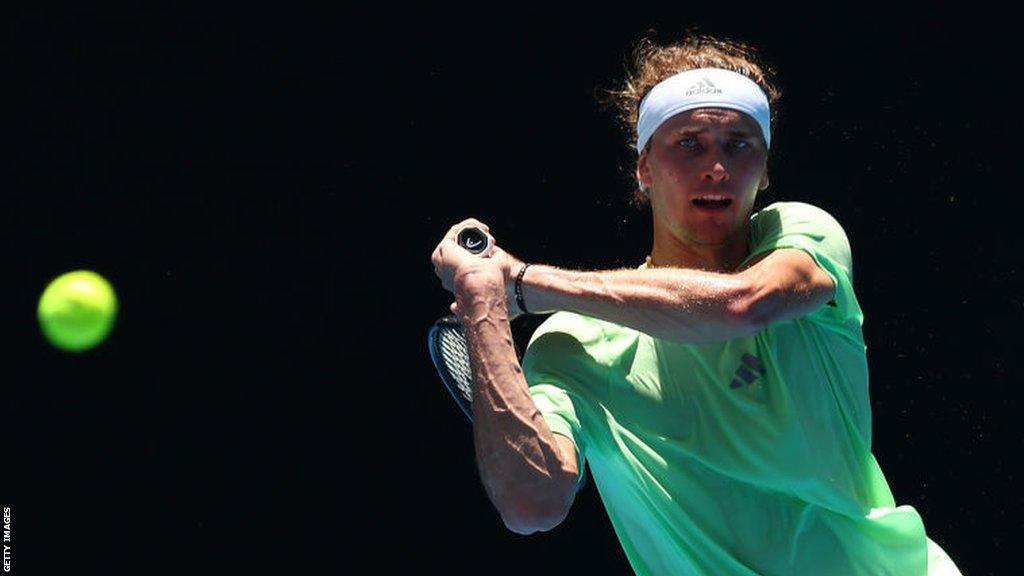Alexander Zverev domestic abuse trial to take place during French Open
- Published

Alexander Zverev has been as high as number two in the world rankings
German player Alexander Zverev faces a trial during this year's French Open over domestic abuse allegations.
The hearing starts on 31 May and Zverev does not have to appear in person, German court officials told BBC Sport.
In November, Zverev was given a penalty order and fined after being accused of physically abusing his ex-girlfriend.
Zverev denies the charges and has lodged an objection against the order, meaning he remains legally innocent and is not convicted until a final ruling.
German law allows sentences in cases of physical abuse to range from a fine or up to five years in prison. With the court already issuing a 450,000 euro (£390,000) fine, it is likely that penalty will remain if he is found guilty.
Speaking at an ATP tournament in Paris in November, Olympic champion Zverev confirmed he intended to contest the penalty but would not comment further.
On Monday, the Tiergarten district court in Berlin said it had set the date for what is expected to be an eight-day public trial in front of a single judge.
The news came on the eve of world number six Zverev starting his Australian Open campaign - a four-set win over fellow German Dominik Koepfer in Melbourne on Tuesday.
Asked in a news conference after the match if it was appropriate for him to continue on the ATP player council, Zverev replied: "Why would it not be?"
Zverev, who will play in the second round on Thursday, said he has no "reason not to believe" he has the backing of his fellow competitors.
The French Open, where Zverev has reached the semi-finals in each of the past three years, starts on 26 May and runs until 9 June.
"The defendant will, in principle, not have to appear in person because it is a hearing after he contested the penalty order," a court spokesperson told BBC Sport.
After the start of the case on 31 May, the court will sit on 7, 11, 18 and 21 June, followed by 5, 12 and 19 July.
Wimbledon - the third Grand Slam of the season - takes places between 1 and 14 July, followed by the Paris Olympics from 26 July.
More dates can be added if the judge says time will be needed to examine the evidence and, for example, call more witnesses.
The spokesperson said Zverev has not been ordered to attend the hearing, but added the court could "theoretically" ask him to appear later in the trial.
A penalty order in Germany is issued when a judge, after examining the written evidence, believes a ruling can be made without going to trial.
The defendant has the right to contest the penalty order, which will likely lead to a public trial.
In a statement released when the penalty order was issued in November, Zverev's lawyers said the evidence had been dismissed as "incomprehensible and contradictory" by a forensic medical report from a Berlin doctor.
Legal firm Schertz Bergmann also claimed the process leading to the penalty order had included "serious procedural violations".
Zverev will defend the case with "all the means at his disposal", Schertz Bergmann added.